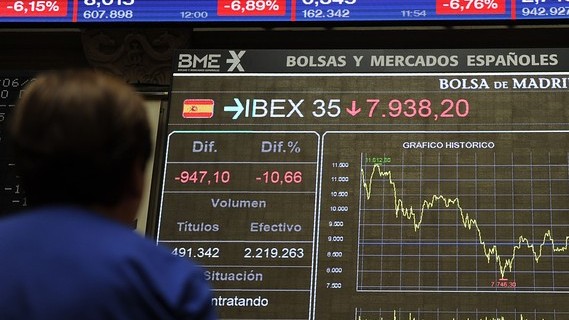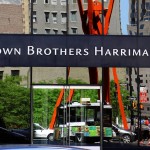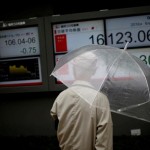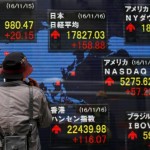How one broker weathered the Brexit storm

They knew it was coming. Broker-dealer Interactive Brokers Group Inc. IBKR, -5.50%has been planning for the Brexit vote since February, but, until late Thursday afternoon, the firm thought, like almost everyone else, the U.K. would vote to remain in the European Union.
Polls earlier in the week had showed support for the “stay” camp growing, even as Federal Reserve Chairwoman Janet Yellen had cautioned on Tuesday that the U.K. leaving the European Union posed a risk.
Fortunately, for the sake of the firm and its customers, Interactive Brokers was also ready for the “unexpected scenario,” according to Steve Sanders, its executive vice president for marketing and product development.
As Thursday night wore on in London, vote tallies started coming in from all corners of what’s left of the British Empire. According to Interactive Broker chief operating officer John Chait, who is based in Switzerland and spoke with MarketWatch on Friday morning, the market had been indicating that a “remain” vote was the likely outcome. Independence Party leader Nigel Farage had all but conceded after the polls closed, with the latest polling showing a 52%-to-48% lead for the “remain” camp. However, the Sunderland vote returns were a bellwether that the tide had turned. Just after midnight London time as the market indicated a sharp change in voter choice. “The volume spiked and there were dramatic price moves in the British pound — sterling collapsed,” said Chait.
The possibility of the U.K. exiting the E.U. had suddenly become the reality. Volatility in currencies, in particular the British pound USDGBP, +3.0767% , were the most dramatic. The pound fell at one point by as much as 11% to $1.3229, its lowest level since 1985. Chait said that compared to the January 15, 2015, Swiss franc crisis, when that country de-linked its currency from the euro, market volumes were extraordinarily high but not so chaotic. “It’s critical that your broker can keep up with these events,” Chait said. “We were ready for the higher volume, and it was a nonevent for us.”
Interactive Brokers monitors markets and customer accounts in real time and adjusts to market volatility immediately. If necessary, the firm will cut off trading and liquidate accounts as markets turn.
Sanders, in an interview with MarketWatch, said: “You can create reports, spit out a lot of data, but it’s impossible to look at everything. We focused on the exceptions and managed those as they came up.”
Interactive Brokers notified customers of the potential for substantially increased volatility and had done so in advance of increasing margin requirements to ensure that a more conservative risk position was both communicated and enforced. “We started preparing for possible referendum scenarios earlier this year,” he said.
Interactive Brokers focused on the basics overnight Thursday, using technology to set trading limits on accounts and protect the customer and the firm from getting in too deep — in particular, when trading in futures and options on currencies. Chait said Interactive Brokers started raising margins in February on products with lower liquidity, particularly those with lower liquidity such as some yield-curve contracts and long-dated options on the FTSE index. ‘We had more time to wait to see on highly liquid products such as forex and the products and trades involving the major indices,” said Chait. “Forex is the fastest-moving market in the world but also the most transparent.”
Interactive Brokers still requires 100% margin for trading its long list of companies created via reverse mergers, another trading scenario deemed risky to client accounts and the firm overall.
During the Chinese reverse merger boom (and bust) in 2011, the firm saw some traders willing to walk away from losing trades. “In that case, margin requirements are really the only tool you have to protect the firm,” said Sanders.
Money held in accounts and real-time controls on trading prevent excessive leverage and huge losses in volatile trading environments. “We protect the firm to protect the customer. We have seen unscrupulous players in the past,” said Sanders.
Futures and currency traders have been hit hard by the failures of other broker-dealers, including MF Global and PFG Best. Whether brought down by too much risk and not enough liquidity as at MF Global or outright fraud as was the case at PFG Best, customers of those firms found themselves shut out of their accounts and waiting for their money.
Source: MarketWatch





























